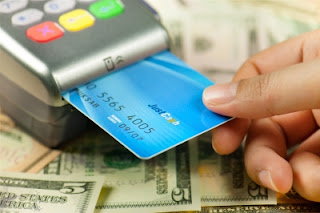Source
Just as they are getting to be more popular with employers and banks
alike, payroll cards are attracting both legal and legislative scrutiny.
The
New York Attorney General's Office is investigating complaints about
fees and some U.S. senators are calling for increased regulation.
But
this business line is booming and looks poised for more growth, in part
because loading the cards is cheaper for employers than issuing paper
checks.
In 2012, companies nationwide put $34 million on 4.6
million payroll cards, according to Aite Group. This will grow roughly
25 percent in 2013, to $42.8 million on 5.8 million cards, Aite
estimates.
Based on a separate Federal Reserve study that pegs
monthly fee income per card at about $1.75, the banking industry could
generate more than $120 million in payroll card fees this year.
Despite
the recent negative attention, Aite analyst Madeline Aufseeser says the
future is bright for the cards. Besides the cost savings, businesses
find the cards appealing because they view them as benefitting
employees, particularly those who are temporary and part time. Money is
immediately available on the cards on payday, typically free of charge
for at least one withdrawal. So there is no waiting in line to cash a
check at the bank and, for those without a bank account, no need to use a
check casher. Also, if the card is lost, the value on it can be
replaced.
But if the cardholder doesn't withdraw his or her full
pay in one transaction, fees generally apply for subsequent uses of the
card, either to make a purchase or an automated teller machine
withdrawal.
The attorney general is looking into whether retailers
and restaurants are running afoul of state laws that give employees a
choice in whether to take a payroll card and a right to access their pay
without a fee. Some have complained that they were forced to accept
payroll cards despite having bank accounts, according to press reports.
Others have reported incurring a variety of fees tallying as much as $50
a month.
Critics complain that some banks give employers a cash
incentive for each employee who signs up for a card, but Aufseeser says
that's not a common practice.
Many large banks offer payroll card
programs, including Bank of America, JPMorgan Chase, Citigroup, Wells
Fargo, Comerica, PNC and BB&T. Only Wells was willing to discuss the
particulars of its program. The bank says it does not offer employers
incentives for signing up employees. Payroll cardholders get free teller
transactions at all Visa-participating banks and one free withdrawal at
Wells' own ATMs. This complies with the New York law requiring that
employees have free access to their pay.
Other large banks are
joining the payroll bandwagon. KeyBank is scheduled to launch its
Key2Payroll program in the first quarter of 2014, according to Key
spokeswoman Laura Mimura. She says Key is getting into payroll cards
because of demand from business customers.
Hundreds of smaller
banks also offer payroll cards, many through a third party like
TransCard in Chattanooga, Tenn., under the American Bankers Association
Community Bank Prepaid Program.
Though none of the banks contacted
for this story would discuss revenue, a 2012 analysis of payroll card
usage by the Federal Reserve Bank of Philadelphia found that the median
monthly revenue was $1.75 per card, versus $7.95 for general purpose
reloadable prepaid cards. The analysis looked at 280 million
transactions on 3 million cards issued by Meta Payment Systems, a unit
of the $1.7 billion-asset MetaBank of Storm Lake, Iowa.
The study
found that the average payroll card customer paid 55 cents per month in
interchange fees, the most numerous of the fees collected. ATM
withdrawal fees averaged $1.92 per month.
But most of the revenue that banks collect on payroll cards comes from the processing fees charged to employers, Aufseeser says.
Industry
lawyers say bankers are not particularly concerned about the New York
investigation. The crackdown is targeting employers, though the Attorney
General's office has said it wants to review "any and all
communications" with their payroll card provider or financial
institution.
As a precaution, Terry Maher, general counsel for the
Network Branded Prepaid Card Association, suggests that banks get
proactive about making employers who use payroll cards aware of each
state's laws. In the end, the bank is the issuer of the card, whether as
a direct provider or through a third party.
"I don't think banks
want to have the job of being the compliance officer to businesses,"
Maher says. "But it's important that they help their clients understand
the regulations out there and help them with the appropriate
disclosures."

No comments:
Post a Comment